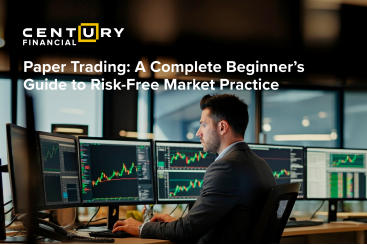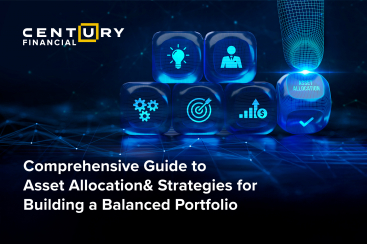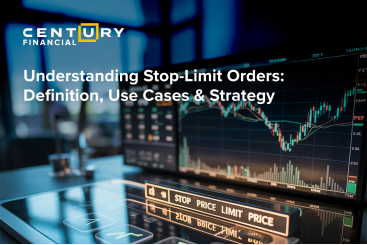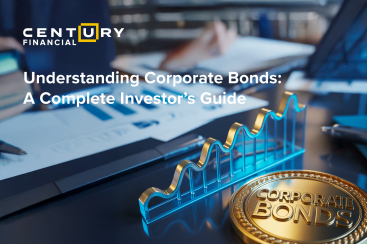Friday, July 14, 2023
Cooler-Than-Expected Inflation Boosts Wall Street Confidence
By Century Financial in 'Blog'


Synopsis:
Lower-than-expected June CPI cools inflation with a positive market reaction. This article talks about the potential USD weakness and implications for investments, diversification, and inflation-resistant assets.
If you've been following the economic news lately, you're likely familiar with the Consumer Price Index (CPI). The CPI is a tool that measures changes in the price of goods and services from the consumer's perspective, serving as a critical barometer of purchasing trends and inflation. Understanding these changes is crucial as they significantly influence the economy’s health and the direction of monetary policy.
In June, something interesting happened. The CPI reading came in lower than expected. This means that inflation, or the general price increase, cooled down. But what does that mean for us, the markets, and the US dollar (USD)?
United States Inflation Rate

We can see here that the US CPI has been falling since July 2022. This could be a potential boon for businesses and the stock market.
Market Reaction
Wall Street stocks rose on 12th July 2023, led by a gain of more than 1% in the Nasdaq, while the 10-year Treasury yield dropped.
The tech-heavy Nasdaq booked its best day of the month to touch its highest close since April 2022. Extending recent gains, some tech stocks were up more than 3%.
Government-bond yields fell. The yield on 10-year Treasury notes slipped to 3.866% from 3.980% marking their most significant one-day decline since May.
Oil prices rose. Benchmark Brent crude futures settled at $80.11 a barrel, their highest level since late April. Brent has rallied about 7% this month.
The End of Tightening Cycle - Why it Matters?
The Federal Reserve, the central bank, uses monetary policy to influence the economy. They increase interest rates to slow economic activity and curb rising prices when inflation is high. This is called a monetary tightening cycle.
Higher interest rates make borrowing more expensive, potentially dampening business investment and consumer spending. If the cycle of rate increases is nearing its end, companies can borrow at a lower rate to invest in their growth, and consumers can spend more, leading to increased corporate profits and higher stock prices.
A Dip in Inflation - Bad for the Dollar, Good for the Stocks
Typically, a lower-than-expected CPI reading is considered bearish (harmful) for the USD. Why? It's because lower inflation often signals lower interest rates, reducing the appeal of the USD for foreign investors seeking higher returns.
The cooler-than-expected inflation report for June spurred a wave of optimism, reviving hopes that the Federal Reserve might be nearing the end of its monetary tightening cycle.
How is U.S CPI Data Forecasted?
Forecasting the CPI is a complex task that involves numerous variables and requires sophisticated economic modelling. It involves the following steps:



Potential Key investment strategies/watch-outs in response to the latest US CPI data


Potential Key investment strategies/watch-outs in response to the latest US CPI data
Regularly monitoring CPI data releases, economic indicators, and market trends to adjust investment strategies accordingly can help prepare one to pivot as new information becomes available.
Stay tuned for the latest economic events and effects on markets!
The content in this blog, including any research, analysis, opinions, forecasts, or other information (collectively, "Information"), is provided by Century Financial Consultancy LLC (CFC) for marketing, educational, and general informational purposes only. It should not be construed as investment advice, a recommendation, or a solicitation to buy or sell any financial instruments.
This Information may also be published across various channels, including CFC’s website, third-party platforms, newsletters, marketing materials, emails, social media, messaging apps, webinars, and other communications. While CFC strives for accuracy, we do not guarantee the completeness, reliability, or timeliness of any content. Any decisions made based on this Information are at your own risk. CFC accepts no liability for any loss or damage arising from its use.
Trading financial products involves significant risk and may not be suitable for all investors. Please ensure you fully understand the risks and seek independent professional advice if necessary.
Please refer to the full risk disclosure mentioned on our website.









.png)
.png)
.png)
.png)


